The road to net zero is already at the forefront of the minds of automotive retailers. Most, if not all, of the products they sell and fix in the future will have zero emissions. UK automotive is on a path to all-electric new car sales by 2030 and all businesses need to be net zero by 2050.
Carbon emissions will need to be drastically cut from transport, but also from all business operations to limit global warming.
As of April 6, 2022, big companies with more than 500 employees or a turnover in excess of £500 million have been obliged to adhere to climate-related financial disclosure regulations. This is a report on how climate change will affect their business.
As part of Taskforce on Climate-related Financial Disclosures (TCFD) reporting requirements in the UK, all premium-listed companies have been required to state in their annual report whether their disclosures are consistent with TCFD recommendations or, if they aren’t, explain why. Even for medium- and smaller-sized dealer groups, operating in a sustainable way is going to become even more important in the coming years.
Savills’ completion of its acquisition of automotive property experts APC (Automotive Property Consultancy) earlier this year has meant the wider team has access to further expertise on sustainability. Dan Jestico, Savills sustainable design director, says that, aside from TCFD, any dealer groups that have leased properties will also need to think about Minimum Energy Efficiency Standards (MEES) for non-domestic buildings.
These are minimum standards for energy efficiency and any leased building that isn’t up to the mark effectively becomes a “standard asset” – rendering it unusable. It means that, from April 2023, a let building’s energy performance certificate (EPC) has to be rated E or better.
That’s not too much of a problem for now, as Jestico estimates that around 90% of the UK’s buildings are already at that level or better.
 However, by 2030, this standard will be ratcheted up to B or better. Jestico says: “At the moment the vast majority of UK leased buildings are below a B.
However, by 2030, this standard will be ratcheted up to B or better. Jestico says: “At the moment the vast majority of UK leased buildings are below a B.
“The picture we’re getting from retailers, office owners and other sectors is mirrored in the automotive sector. The bigger players are aware of it and they might have policies that are related to sustainability and net zero. The middle players may have some awareness. Some are up on it, some less so.”
There is further pressure from landlords for retailers to take sustainability seriously, with “green clauses” added to allow monitoring of a tenant’s energy use. Kristina Simpson, Savills Automotive director, says: “We’ve seen green clauses that state that the EPC baseline can’t change for the worse during a tenancy agreement. “While the onus is on the landlord to deal with the cost of this, it does impact the tenant when the detail of that is included in the lease agreement.”
PLANNING PERMISSION
Simpson also details that sustainability requirements are being built into the planning process. A recent new build dealership project in West London is required to have a Building Research Establishment Environmental Assessment Methodology (BREEAM) rating of excellent.
BREEAM is one of the global green building rating systems that is used to measure the environmental performance of new and existing buildings.
 Simpson says: “To meet this BREEAM standard we have included a solar energy system, green living walls and sustainable travel for staff. This was all as a precommencement condition before work was allowed to happen on site.
Simpson says: “To meet this BREEAM standard we have included a solar energy system, green living walls and sustainable travel for staff. This was all as a precommencement condition before work was allowed to happen on site.
“The biggest part of this is there is a cost implication and this can run into six figures. It’s not necessarily thought about by all dealer groups when looking at new-build projects and it can come as a surprise.”
There are a number of dealerships that have already gained the coveted BREEAM excellent score, including Kia Coulsdon, Volkswagen Coulsdon, Audi Coulsdon and Volkswagen West London. These properties include features such as solar photovoltaic (PV) roof panels, combined heat and power plants, air source heat pumps, high luminous efficiency lighting, air conditioning systems powered by car engines running on natural gas and landscaped exteriors.
BENCHMARKING TO UNDERSTAND THE BIGGEST HURDLES
 Andrew Hall (pictured), Lookers business development director, takes into account environmental, social and governance (ESG) strategy as part of his remit for the group. Lookers appointed corporate sustainability consultancy CEN-ESG to put together a sustainability statement for its 2021 annual reporting.
Andrew Hall (pictured), Lookers business development director, takes into account environmental, social and governance (ESG) strategy as part of his remit for the group. Lookers appointed corporate sustainability consultancy CEN-ESG to put together a sustainability statement for its 2021 annual reporting.
CEN-ESG also helped to benchmark Lookers against peers in the industry to see where it stood. These scores are only for internal use to help put an action plan together for where Lookers could improve.
Lookers’ ESG strategy also included surveying all of its shareholders, stakeholders, staff, banks, OEMs and customers.
Hall says: “We asked everyone in our world what was important and how we could be better.
“We compiled those results into the topics we need to focus on. We’ve created measures across environmental, social, governance and products.”
These products are the vehicles Lookers’ distributes and form part of the carbon ecosystem the automotive industry is a part of (see panel below).
Hall says: “Of course we’re all moving to zero emissions vehicles, but we have to look at how we align with OEMs and how we move forward with the deadlines that are in place.
“To some extent we’re in the hands of the OEMs and they’re at various stages with zero carbon manufacturing. However, we distribute these cars and so automotive retail is part of the carbon ecosystem.
“The OEMs will have to have the right credentials for net zero if they’re to continue to sell their products in the modern world. Cars will have to be produced and disposed of in a green manner to be able to bring them to the market.”
Scope 3 is expected to be made mandatory in the near future.
Scope 1 covers direct emissions from owned or controlled sources. Scope 2 covers indirect emissions from the generation of purchased electricity, steam, heating and cooling consumed by the reporting company.
Scope 3 includes all other indirect emissions that occur in a company’s value chain, including commuting to work or even vehicles distributed by an automotive retailer.
THE CARBON LITERACY PROJECT
Automotive retailers and businesses are creating further awareness for future sustainability using the Automotive Carbon Literacy Toolkit. The toolkit was launched by Auto Trader in partnership with The Carbon Literacy Trust in November 2021. It was developed in close collaboration with Nissan, Lookers, Marshall Motor Group, Motorpoint, AvailableCar and salvage firm SYNETIQ.
The toolkit includes training presentations that can be used to help make staff at a business more aware of climate change and carbon footprint reduction. Lookers is running a voluntary carbon literacy programme across its business that takes around a day to complete. This includes an online learning module with information, videos and questionnaires.
All board members have completed the training. Hall says: “Whether you’re a committed petrolhead or not, going through this carbon literacy training makes you think about your personal impact.
“These are the roads we need to go down. If we’re not really authentic about sustainability, customers will see that. More importantly, the staff will see it too. Employees want to be part of a sustainable business. “Another benefit of a solid ESG strategy is its cascade effect on your staff and your customers.”
THE ROAD TO ZERO
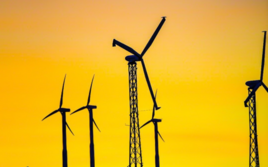 Dealer groups with a good understanding of their Scope 1 and 2 baseline carbon output figures can help set a baseline for a net zero strategy. Hall says Lookers is taking its time to make sure the group gets it right.
Dealer groups with a good understanding of their Scope 1 and 2 baseline carbon output figures can help set a baseline for a net zero strategy. Hall says Lookers is taking its time to make sure the group gets it right.
Lookers is working with Inspired Energy, its energy broker and consultancy, to put a plan together for the group for the road to net zero. This is a five-year plan and the assessment will likely be published by Q1 2024.
Hall says: “Inspired already has a good handle on our carbon emissions output from Scope 1 and Scope 2.
“We’re not rushing our plans on net zero. You have to do this properly. It’s not about ticking boxes.”
Jestico agrees and says there needs to be a “thought out timeframe” and capital expenditure programme in place. He says: “It’s not about making glib comments saying you’re going to be net zero by 2030 or making statements that could be seen as greenwashing. It’s about making appropriate, properly costed decarbonisation timelines.”
MEASURED AND MANAGED
Dan Jestico, Savills sustainable design director, says an “energy hierarchy” should be used for every new building. This involves looking at the best way to design with low or zero carbon in mind.
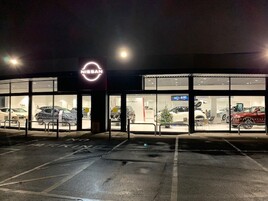 Once heat, light, ventilation and cooling has been planned and thought out, then renewable energy can be looked at to augment energy consumption. This might include solar, battery storage systems and wind turbines. Jestico says legacy buildings are much more challenging to address. Carbon output data collection is the best place to start.
Once heat, light, ventilation and cooling has been planned and thought out, then renewable energy can be looked at to augment energy consumption. This might include solar, battery storage systems and wind turbines. Jestico says legacy buildings are much more challenging to address. Carbon output data collection is the best place to start.
He says: “If you have an idea about where your current energy use is, you can then benchmark against industry peers in the same space.
“If a legacy building is particularly high on the gas front, you might need to insulate your building better.
“Due diligence inspections can help to assess building materials and heating systems. Are you using obsolete technology?”
This fact-finding mission can then be used to detail a refurbishment programme to make improvements. Jestico adds: “You know how much it will cost and you know your capital expenditure programme. You can then target the most carbon-intensive assets first to tackle the low hanging fruit. There’s a good rationale for doing it as a staged programme of interventions.”

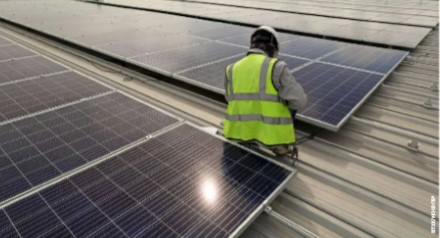
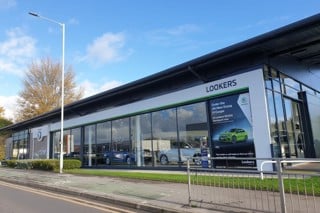
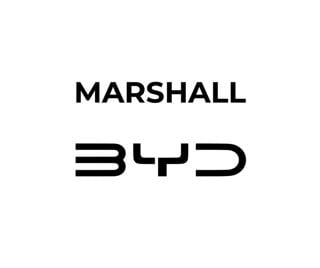
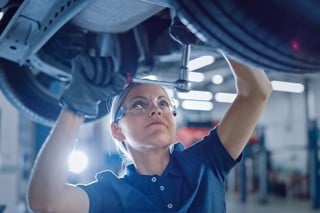
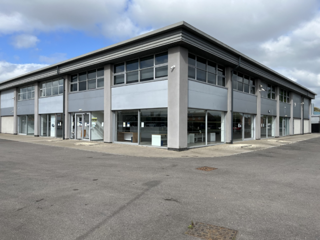
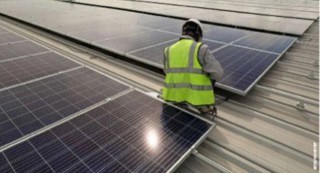












Login to comment
Comments
No comments have been made yet.